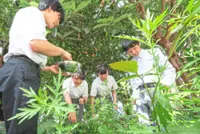BEING a parent to a child with haemophilia, or any genetic disorder for that matter, requires various lifestyle adjustments to ensure healthy and lively years for the child. Here are some ways parents can help ensure that for children with haemophilia.
The basics of haemophilia





